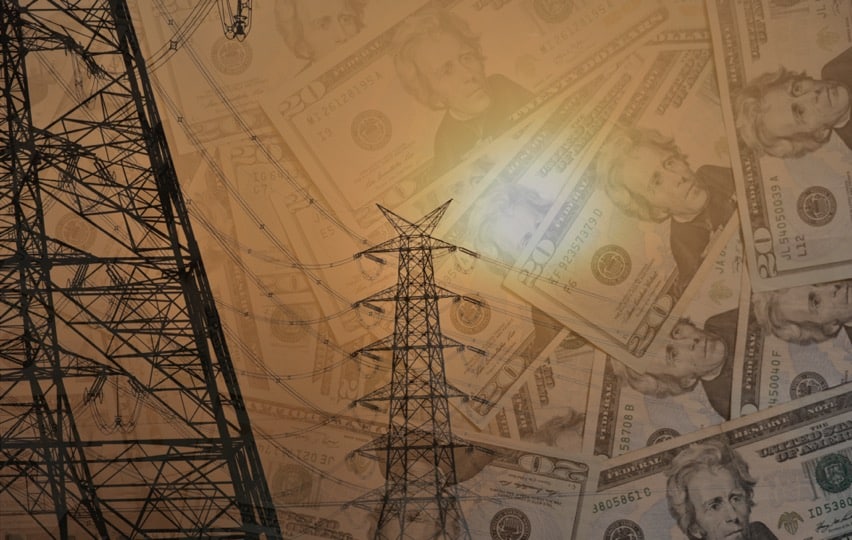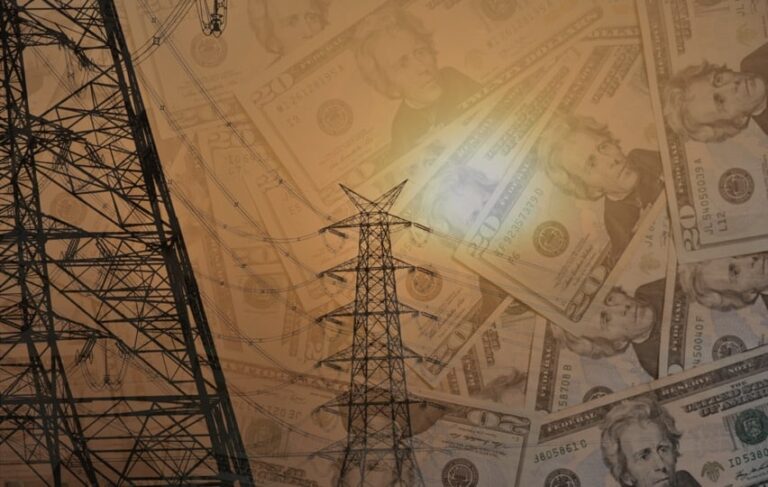Michigan PSC rebuffs ALJ recommendation, allows DTE Energy to force customers to pay EEI dues

When the Michigan Public Service Commission approved a $273.3 million rate increase for DTE Electric earlier this month, renewable energy and environmental advocates were moderately satisfied. The PSC approved an increase that was significantly lower than the $476.6 million that DTE had initially requested, rejected DTE’s proposal to charge solar customers an extra $12 to $15 a month, and approved a solar payback formula that is higher than what the utility proposed.
But buried in the order was the PSC rejection of Administrative Law Judge Sally Wallace’s recommendation that shareholders – not customers – pay $1.269 million for DTE’s membership in the Edison Electric Institute (EEI). EEI is an inherently political organization. At $90 million in 2017, EEI’s budget is mostly made up of utility member dues that electric ratepayers are forced to pay. The association’s budget is primarily spent on staff, many of whom spend a considerable amount of their time working to help member utilities achieve desired policy and regulatory outcomes such as reforming electric rates, advocating for increased fixed and demand charges, and weakening EPA regulations.
Karl Rábago, a former Texas utility regulator and an expert witness in the case on behalf of the Natural Resources Defense Council, Michigan Environmental Council, and the Sierra Club, called the Michigan PSC rejection “disappointing, to say the least.”
In direct testimony filed in November 2018, Rábago argued that because DTE did not provide information to support the reasonableness of cost recovery or to “ensure the accuracy of the assertions by EEI as to the extent to which dues are used to support lobbying and advocacy positions,” the PSC should deny recovery of the expenses.
As the Energy and Policy Institute noted in its report Paying for Utility Politics, the National Association of Regulatory Utility Commissioners (NARUC) stopped conducting annual audits of the trade association’s financial records in the early 2000s. These audits had shown that EEI spent money not just on legislative and regulatory lobbying, but also legislative and regulatory policy research, advertising, marketing, and public relations – activities that consisted of almost 70% of EEI’s total expenses.
Utility regulators have since been left in the dark trying to determine whether the requested dues are just and reasonable without solely relying on assurances by EEI and their invoices.
In the Proposal for Decision, the Administrative Law Judge agreed with Rabago’s argument and highlighted how there had been no recent audits of EEI’s spending and “state utility commissions are beginning to address the concerns about lack of transparency in EEI expenditures.” The ALJ further stated that DTE can provide “stronger evidence” that EEI dues benefit customers in future rate cases.
DTE did not respond with any evidence demonstrating how its membership in EEI benefits customers. Instead, the utility oddly argued that the burden of proof lay with Rábago to show that EEI did not benefit customers. Apparently that was all Commissioners Sally Talberg and Norman Saari needed to be convinced. (Commissioner Dan Scripps, who was appointed by Governor Whitmer in February, recused himself from the rate case.) They wrote they are “persuaded that DTE Electric’s projected recovery of $1.269 in EEI dues is reasonable and prudent…” The commissioners also appeared satisfied with the lack of any data presented by DTE, stating “the Commission accepts DTE Electric’s reliance on EEI’s invoices at this time.”
In an email to the Energy and Policy Institute, Rábago said:
“What concerns me is this: We all agree that the Company provided nothing by way of evidence except the invoice from EEI for almost $1.3 million in dues.
Businesses pay based on invoices all the time, but most of the time you can see that the paperclips you ordered are paperclips … big invoices get more attention, especially when it might be improper or even illegal to charge customers for trade association lobbying.
Here, the ‘vendor’ is a highly political Washington trade association with strong motivation to claim the smallest lobbying percentage possible—because members don’t like making shareholders pay for lobbying if customers can be hit with the expense. And yet, the Commission is declaring that the invoice, annotated by EEI itself is enough.
DTE didn’t ask to see a financial statement, an audit, a report, or anything else to protect their customers. And the Commission won’t make them.
If this is what ‘proving its case by a preponderance of the evidence’ means in Michigan, customers better hold on to their wallets.”
Will California regulators also ignore ALJ recommendations?
The ALJ in the DTE Electric case has not been the only one in recent months to make a recommendation that utility customers should not be forced to cover EEI dues.
In April, ALJs in Southern California Edison’s rate case agreed with The Utility Reform Network (TURN) and recommended the California Public Utility Commission (CPUC) reject the recovery of $1.552 million in EEI dues (along with contributions to the California Taxpayer Association, the Business Roundtable, California Small Business Association, and California Small Business Roundtable).
The ALJs specifically said that providing the EEI invoice is “insufficient evidence to establish the portion of the invoice which should be recovered from ratepayers” and that “SCE has not met its burden to establish any portion of the EEI dues are recoverable from ratepayers.”
The CPUC has yet to rule on the case.
Update: The CPUC disallowed the EEI dues: “We find SCE has not met its burden to establish any portion of the Edison Electric Institute dues are recoverable from ratepayers.”
In SCE’s most recent general rate case, the CPUC agreed with an ALJ recommendation that allowed recovery of just over half of what SCE paid to be a member in EEI – $1 million of the total $1.922 million.
SCE had accepted TURN’s recommendations and charged shareholders for the California Foundation on the Environment and the Economy and the Business Roundtable, but it didn’t agree with their position that shareholders should also cover the EEI dues. The utility even brought EEI into the rate case to help in its defense of forcing customers to pay for $1.462 million in annual dues.



